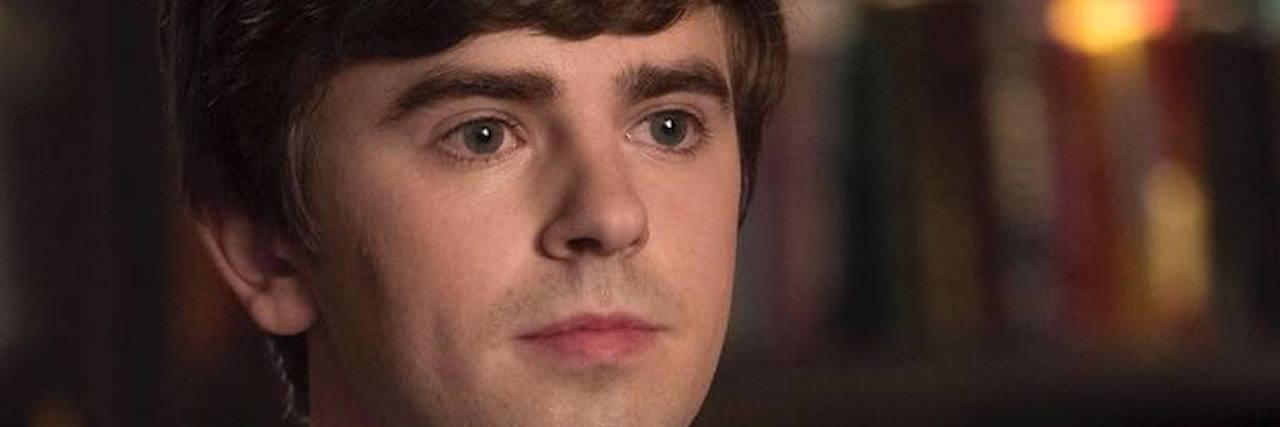'The Good Doctor' Scene That Angered Me as I Parent a Teen on the Autism Spectrum
Editor's Note
This story has been published with permission from the author’s son.
There was a scene in “The Good Doctor” this week that caused a visceral reaction in me.
One of Dr. Shaun Murphy’s fellow colleagues told him people are nice to him because they pity him and that because of his autism he is treated more like a “pet” than an equal. A string of expletives escaped my mouth so loudly that my dog hid under the dining room table. My knee-jerk expletive filled reaction was certainly a result of the cruelness of Dr. Murphy’s colleague’s words, but unfortunately, it was more a direct result of the reality and the truth spoken in those cruel words.
It’s a fine line I often walk as I observe the limited social interactions between my autistic son and his peers. Is that person being nice because they pity the autistic kid or is that person being nice because they genuinely like my son? The reason I trip over this line regularly is because these same nice kids never include him in anything outside of the school walls. This is not because they aren’t nice kids — because many are incredibly genuine human beings — it’s because they don’t know what to say or do after, “Hi Ryan!” and neither does he. And because of this, these social interactions to a mother, to a colleague, to an autistic person may look like a pat on the head or a pitied “hi.”
The problem lies (again) in lack of understanding and awareness of autism by my son’s neurotypical peers. And that is no fault of their own. We — as a community, as parents, as an educational system — need to do better at explaining how autism impacts language, social awareness and processing. If a teenager sees my kid sit alone, eat lunch alone, walk the halls alone, go to homecoming alone, it may be easy to assume he wants to be alone. If teenagers worry about saying or doing the “wrong thing” and upsetting an autistic person, it’s easier just to say hi, pat them on the head, crown them prom king and move on. If we continue with this air of mystery, this puzzle that a diagnosis of autism brings, individuals with autism will continue to remain alone because people often shy away from something, or someone, they don’t understand.
We must do better. The rate of autism in boys is 1 in 38, with an overall rate of 1 in 59. The chance of your son or daughter not having an autistic student in their classroom, on their bus or at their workplace is virtually impossible. Show them this. They don’t have to memorize it, they don’t have to tattoo it on their body, they just need to read it and try and understand it.
The autistic population has been trying to understand the neurotypical world for years, often at great personal, emotional and physical cost to them. The very least we can do for them is give them more than a “hi” and a pat on the head at no personal cost to any of us.
Image via Facebook

